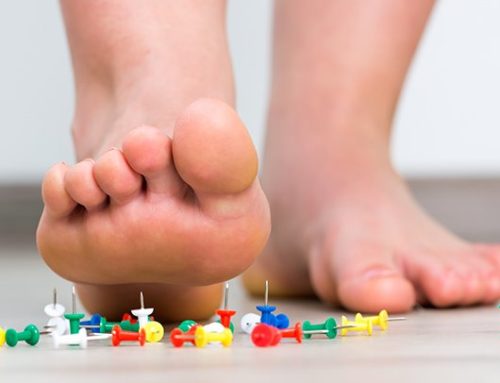 Diabetes can have numerous effects on your feet. One of the first things that may happen is that you begin to lose sensation, usually starting at the toes. What this is called is peripheral neuropathy.
Diabetes can have numerous effects on your feet. One of the first things that may happen is that you begin to lose sensation, usually starting at the toes. What this is called is peripheral neuropathy.
It is important to remember that when you are purchasing new shoes that they fit properly. If you are unsure of your exact shoe size, then you can have your feet measured.
The chances of experiencing neuropathy in your feet is directly correlated to the number of years you have diabetes. Research shows that one in three people with diabetes will have some loss of feeling in their feet. When neuropathy does begin to happen, it usually starts slow. Many people are actually not aware of the neuropathy in their feet when it begins. Peripheral neuropathy will often occur 7 to 10 years after you have been diagnosed with diabetes. For those who have had trouble controlling their blood sugar, the onset of neuropathy may begin sooner.
If you have lost feeling in your feet then it possible that you may injure your feet without knowing. The problem is that you may step on sharp objects like a screw or nail, piercing the skin so badly that it may even go down to the bone. If the wound is not noticed and treated immediately this, could lead to serious problems and could lead to amputation.
It is extremely important that you perform a daily inspection of your feet. Certain precautions should also be taken such as not walking where there are sharp objects and not walking barefoot.
Periodically this loss of sensation can cause a burning feeling in your feet. This burning feeling can become quite severe and often gets worse at night. This burning feeling is what is known as painful peripheral neuropathy. If you are experiencing these symptoms it, is important to consult your Podiatrist or diabetic clinic. It may be possible to alleviate these symptoms.
It is important to understand that diabetes can also affect the blood supply to your feet. A reduction in the blood supply to your feet can cause healing issues and make your feet more vulnerable to infections. It is important to have your feet regularly checked by your foot specialist.
Contact your podiatrist right away if experience any of the following:
- New swelling in your feet
- Your skin color changes. If you see that your feet/foot are becoming redder, bluer, or there are black areas.
- Any type of break in the skin or discharge coming from your feet.
If you suddenly experience pain in a foot, that feels warm to the touch and the same area on the other foot, does not feel as warm, you need to see your podiatrist right away. Until you see your foot specialist it, is advisable to stay off of your feet as much as possible.
With due diligence and a few precautions, you can help to keep your feet as healthy as possible. Communicating with your doctors will contribute to avoiding any serious issues that may arise concerning diabetes and your feet.


Leave A Comment